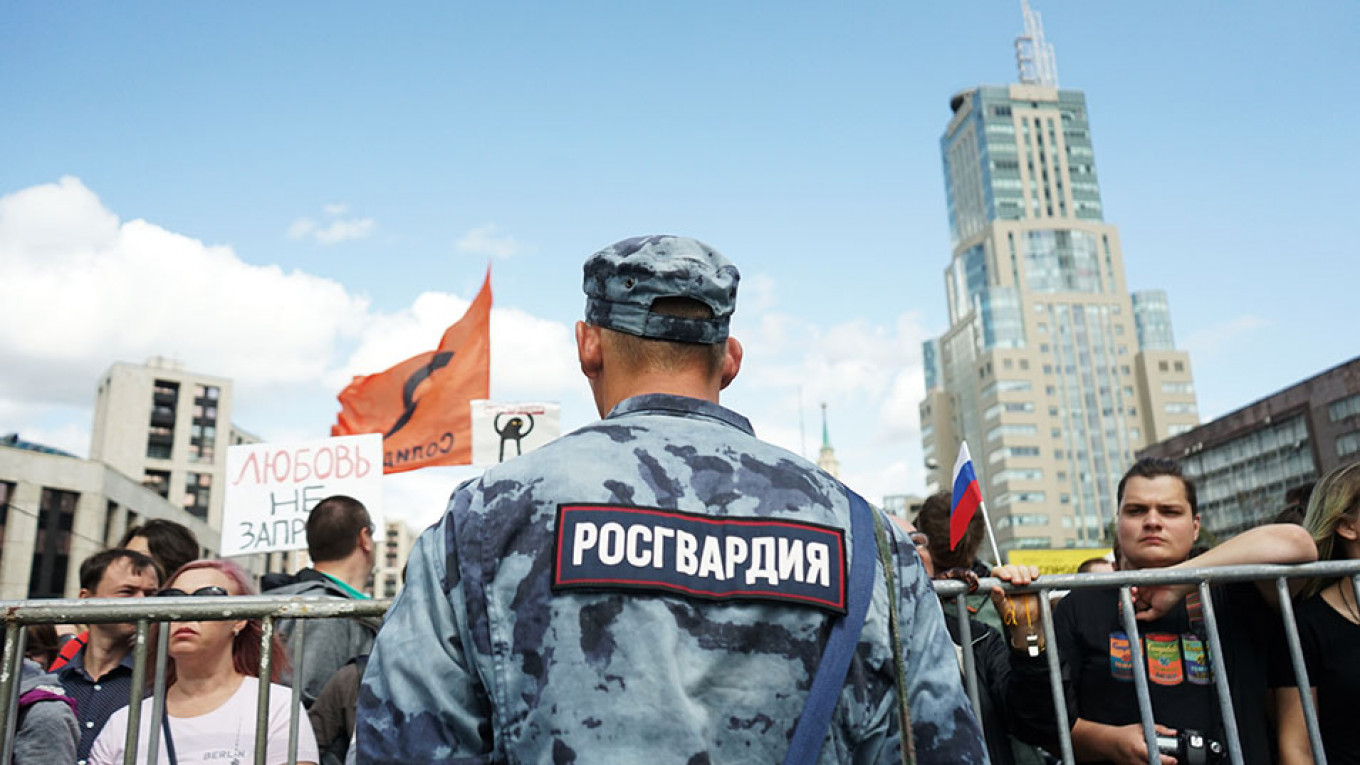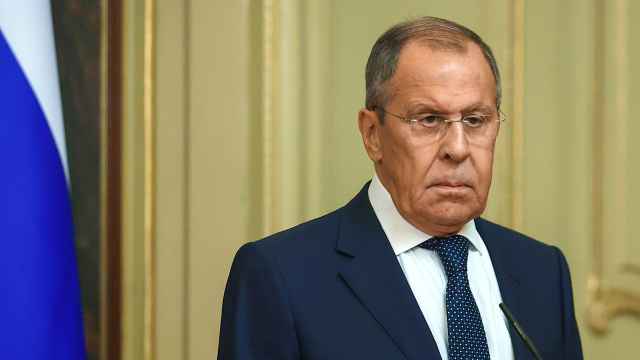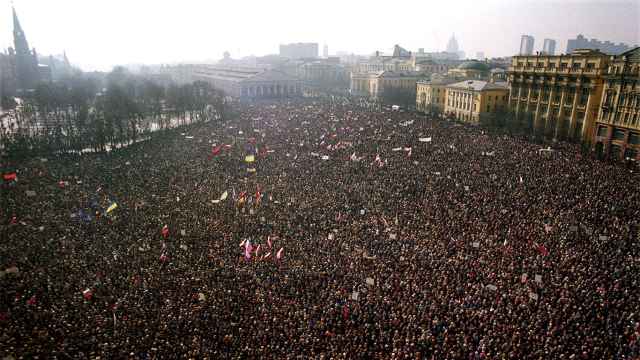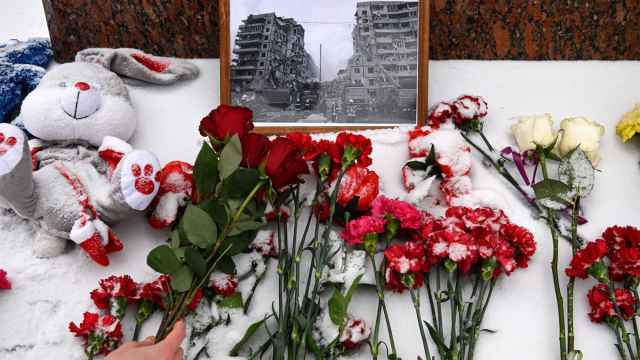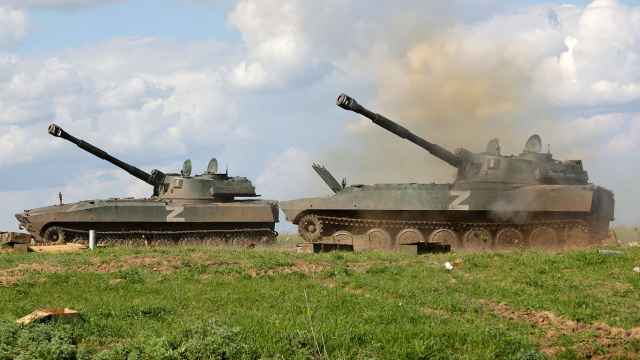An unauthorized protest is taking place in Moscow today. “Unauthorized” means that those participating will risk arrest and possibly time in jail. More than 1300 protesters were detained a week ago, during another unauthorized rally. Scores were brutally beaten by the riot police.
The authorities have signaled their intention to crack down hard in the hope of deterring citizens from turning up at today’s protest. Let me explain my reasons for going.
This is a protest against the government’s decision to prevent independent candidates from running in the local elections.
But the elections are not really the issue. When putting their names forward, the independents (many of whom have now been arrested) were testing the limits of the regime’s flexibility. If the regime opened up — just a little — one could then hope for the gradual widening of the sphere of political contestation.
This, unfortunately, did not happen.
This did not happen because the Moscow city authorities feared that should the independents be allowed to run, the Kremlin-backed candidates would lose with big numbers.
Russian regional elections last fall showed that the regime can lose even when it resorts to electoral fraud.
If seats are lost to the opposition — first at the local levels, then perhaps even at the national level — the Kremlin will be placed in an untenable situation.
Putin remains personally popular but the tsar cannot govern without his boyars. The regime thus deemed creeping democratization of Russia to be an unacceptable risk. By calling peaceful protesters dangerous rioters, the government appears to be evoking the spirit of China’s June 4, 1989.
These are very unfortunate developments.
Where do I stand on all of this, as a Russian citizen?
I live a very comfortable life. A trained historian, I became a professor at the tender age of 35. Over time, I have achieved a degree of respect and recognition for my academic work.
I have secured a tenured post at a prestigious Western university and I spend several months a year in the U.K.
Unlike many Russian government officials, I have never stolen anything from Russia, nor do I owe anything to Russia. Everything that I have achieved in my life, I achieved it through hard work.
In other words, I have less stake in Russia than many idealistic youngsters who grew up in the shadow of a corrupt regime that gives them no dignity and little hope of advancement in life.
But, I am still Russian. And I believe in Russia.
I’ve always thought of myself as a hardened cynic. Many peers of my generation have a cynical take on things. Russia’s 1990s did it to us. But deep below the veneer of cynicism lives an undying faith in a better world and a conviction that all of us have something to contribute to a new Russia. We all can do our part. And we should.
Yes, I could also remain on the sidelines and watch others — mostly people much younger than me – stand up for me and for the rest of us.
But as a Russian, a European, and a citizen of the world, do I not have the responsibility to stand with them, shoulder-to-shoulder, in defense of values that we share: Free and fair elections and democratic governance?
Now, you might say: These are complicated concepts, to be discussed in the classroom, not on the streets. As a professor, this is what I would normally do but I cannot sit still when police batons are falling on the heads of peaceful protesters.
What will I tell my children when they ask me what I did when it truly mattered? And what will I tell myself?
One virtue of being a historian is remembering things. Even events that you do not experience first-hand.
We — Russia, Europe, the world — have been here before. We must not allow oppression to return.
If this means joining up with youngsters to call for freedom, so be it. At least no one will say: Oh, it’s just a bunch of hipsters protesting.
Yes, there will be many young people on the streets today, many students. And at least one history professor.
A Message from The Moscow Times:
Dear readers,
We are facing unprecedented challenges. Russia's Prosecutor General's Office has designated The Moscow Times as an "undesirable" organization, criminalizing our work and putting our staff at risk of prosecution. This follows our earlier unjust labeling as a "foreign agent."
These actions are direct attempts to silence independent journalism in Russia. The authorities claim our work "discredits the decisions of the Russian leadership." We see things differently: we strive to provide accurate, unbiased reporting on Russia.
We, the journalists of The Moscow Times, refuse to be silenced. But to continue our work, we need your help.
Your support, no matter how small, makes a world of difference. If you can, please support us monthly starting from just $2. It's quick to set up, and every contribution makes a significant impact.
By supporting The Moscow Times, you're defending open, independent journalism in the face of repression. Thank you for standing with us.
Remind me later.



